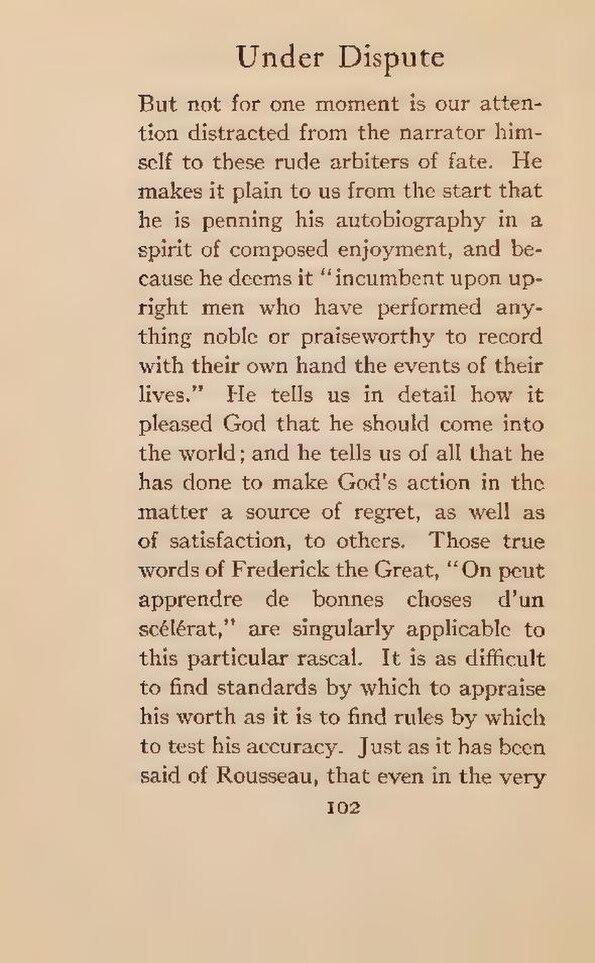But not for one moment is our attention distracted from the narrator himself to these rude arbiters of fate. He makes it plain to us from the start that he is penning his autobiography in a spirit of composed enjoyment, and because he deems it "incumbent upon upright men who have performed anything noble or praiseworthy to record with their own hand the events of their lives." He tells us in detail how it pleased God that he should come into the world; and he tells us of all that he has done to make God's action in the matter a source of regret, as well as of satisfaction, to others. Those true words of Frederick the Great, "On peut apprendre de bonnes choses d'un scélérat," are singularly applicable to this particular rascal. It is as difficult to find standards by which to appraise his worth as it is to find rules by which to test his accuracy. Just as it has been said of Rousseau, that even in the very
